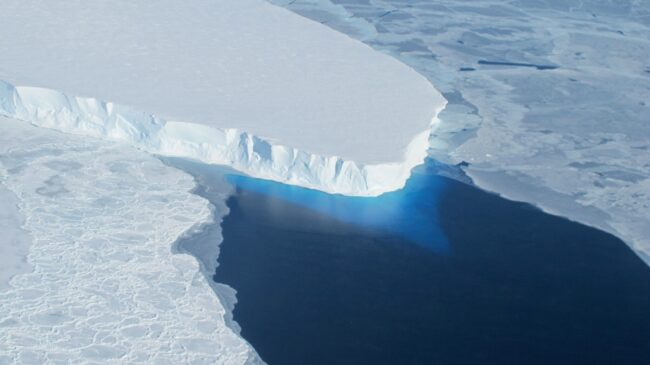
Four teams of scientists, including a team co-led by Columbia University researchers, will receive up to $45 million over five years for research that advances human understanding of the global carbon cycle driving a changing climate. The teams are the first to be funded through the Virtual Institute for the Carbon Cycle (VICC), an initiative of Schmidt Sciences that aims to reduce uncertainty in the global carbon cycle to inform effective climate policy and solutions.
The science of climate projections has advanced rapidly over the past several decades, informing local to global decisions about everything from energy use to disaster preparedness, urban planning to manufacturing. Yet, given that these models rely on immense amounts of hard-to-measure data, large uncertainties remain in the understanding of how carbon dioxide moves through the Earth at both the regional and continental scale. VICC aims to more accurately capture the carbon cycle—the global movement of carbon dioxide among the atmosphere, ocean, plants and soils.
The four teams of international university researchers will collect high-resolution data needed to generate climate projections and, ultimately, inform the most significant decisions facing the planet: how to ensure a sustainable future. They will leverage AI and machine learning to develop new observations and model products. Funded projects include pioneering research into carbon fluxes in central Africa’s tropical forests, advanced land use modeling, robotic observations of the Southern Ocean in winter, and the impact of rapid permafrost thaw on global carbon. More data in these areas will lead to more accurate carbon accounting, better planning for natural disasters and informed choices for the climate and energy transition, among other application
Galen McKinley, professor of Earth and Environmental Sciences at Columbia University and the Lamont-Doherty Earth Observatory, which is part of the Columbia Climate School, will serve as co-lead for the “Constraining Ocean Carbon with Optimized Observing (COCO2)” project along with Adrienne Sutton of the NOAA Pacific Marine Environmental Laboratory. The project will deploy autonomous uncrewed surface vehicles (USVs) in the Southern Ocean to collect critical ocean carbon data. Currently, carbon data are collected for only about 2% of the global ocean each year. The COCO2 project will conduct targeted data collection informed by computer simulations of ocean circulation and the carbon cycle. This will enable more refined and accurate estimates of the ocean’s role in the global carbon cycle.
Once collected, the data will be analyzed using machine learning and other tools, and compared with data gathered from other parts of the globe, to fill-in known gaps in quantifying the ocean’s uptake of anthropogenic carbon dioxide, a critical process for slowing global warming. The project will also help create more accurate global estimates of air-sea CO2 exchange.
“This project will address critical uncertainties in the magnitude and mechanisms for the ocean’s carbon uptake and allow us to better understand how the ocean impacts the climate today and in the future,” said McKinley. “By limiting the rise of anthropogenic CO2 in the atmosphere, the ocean limits climate change. In so doing, the ocean provides a massive climate regulation service to everyone on Earth.”
Scientists estimate that the ocean has already removed more than one-third of all industrial-era anthropogenic carbon emissions from the atmosphere through the natural processes of the global carbon cycle. “Each year, the ocean carbon sink removes from the atmosphere about 25% of humanity’s emissions,” said McKinley. “This is one million times more carbon than all engineered carbon dioxide removal projects combined.”
The COCO2 project will also leverage cloud computing to allow members of the research team to run experiments and provide input from afar. Additional project partners include the Council for Scientific and Industrial Research (CSIR) and Stellenbosch University in South Africa, and CSIRO, the national science agency of Australia
In 2024, VICC launched an open call for projects addressing critical knowledge gaps and reducing uncertainty in carbon cycle science on time scales relevant for informing climate policy and enabling solutions. More than 170 submissions were received, of which 25 teams were invited to submit full proposals. Following review by independent experts and the VICC Advisory Board, four projects were selected for funding. Looking ahead, VICC will issue another open call next year to support additional priorities such as wetland emissions, soil carbon flux, novel instrumentation, and modeling innovations.
This story was adapted from a press release from Schmidt Sciences. For more information about VICC and the funded projects, visit Schmidt Sciences.
More information about Galen McKinley’s research can be found on the McKinley Ocean Carbon Group website.


